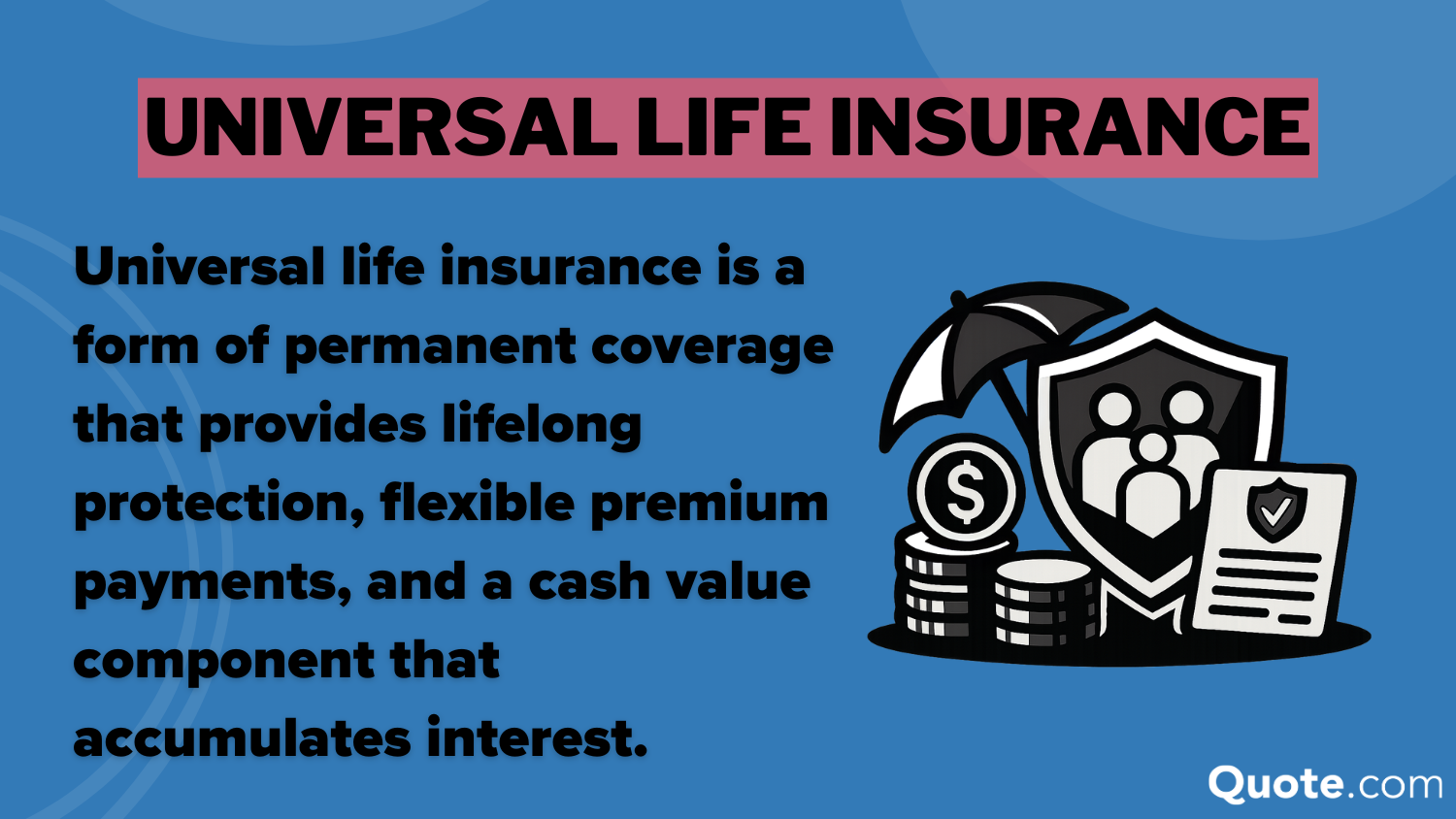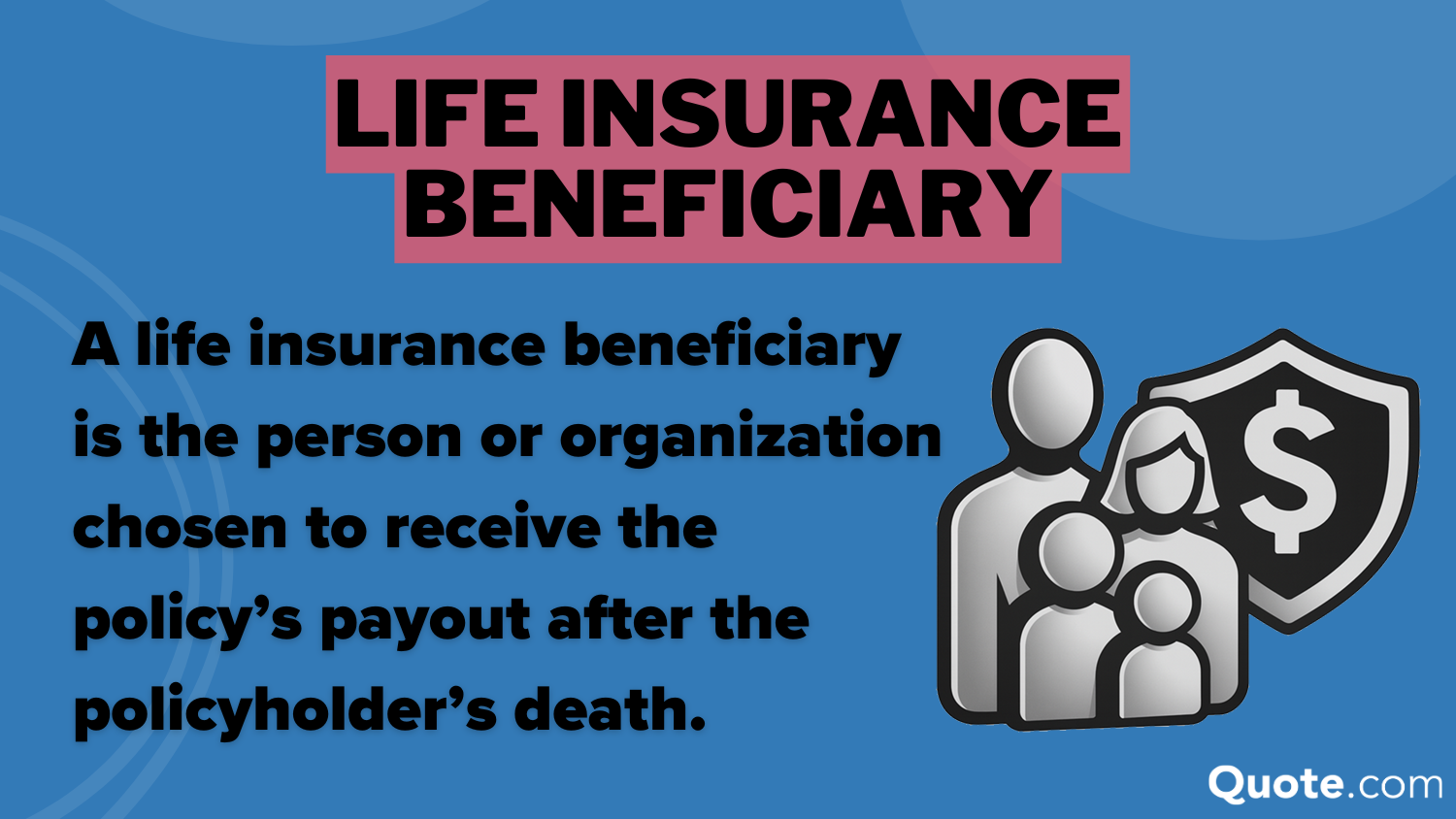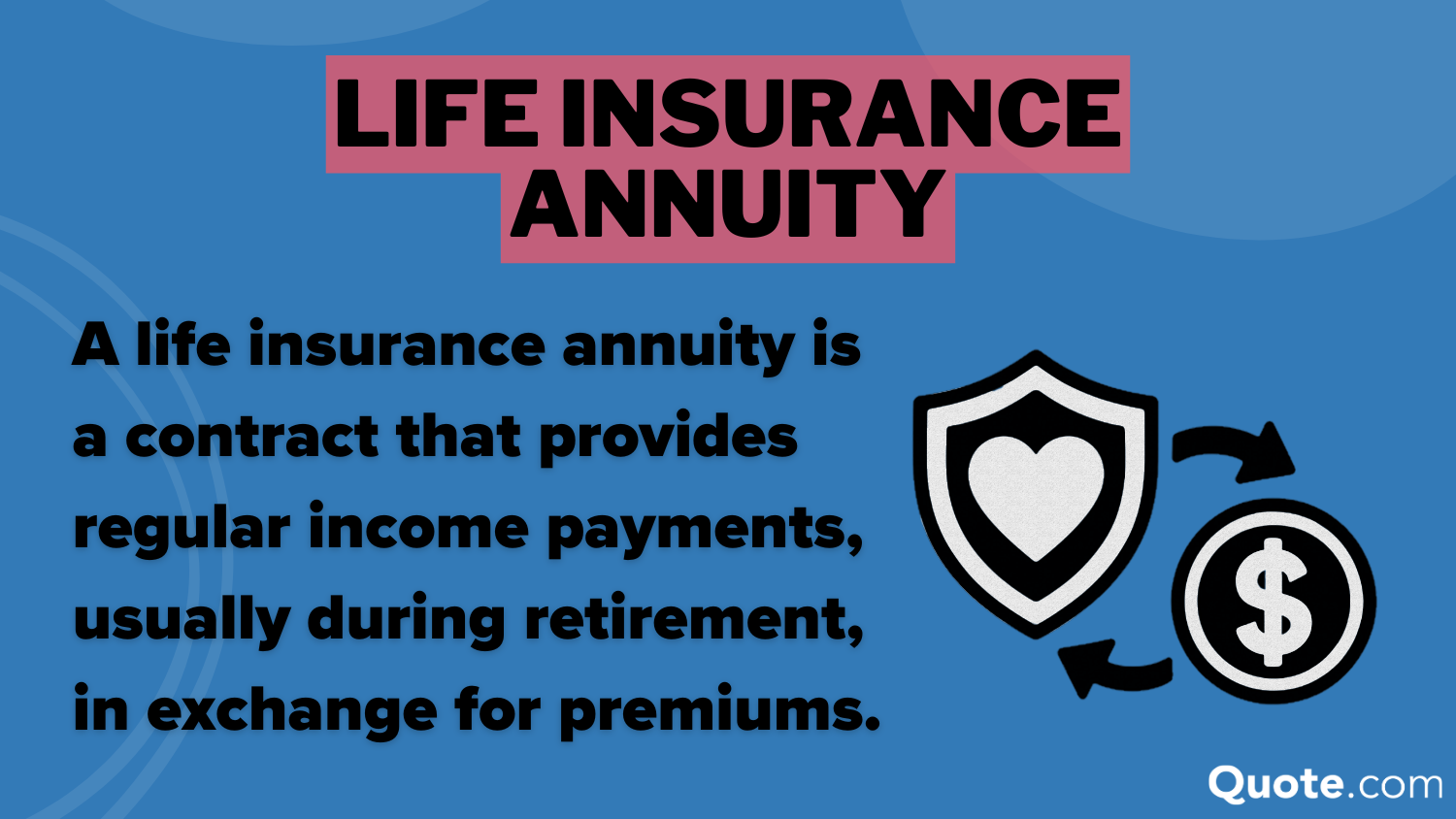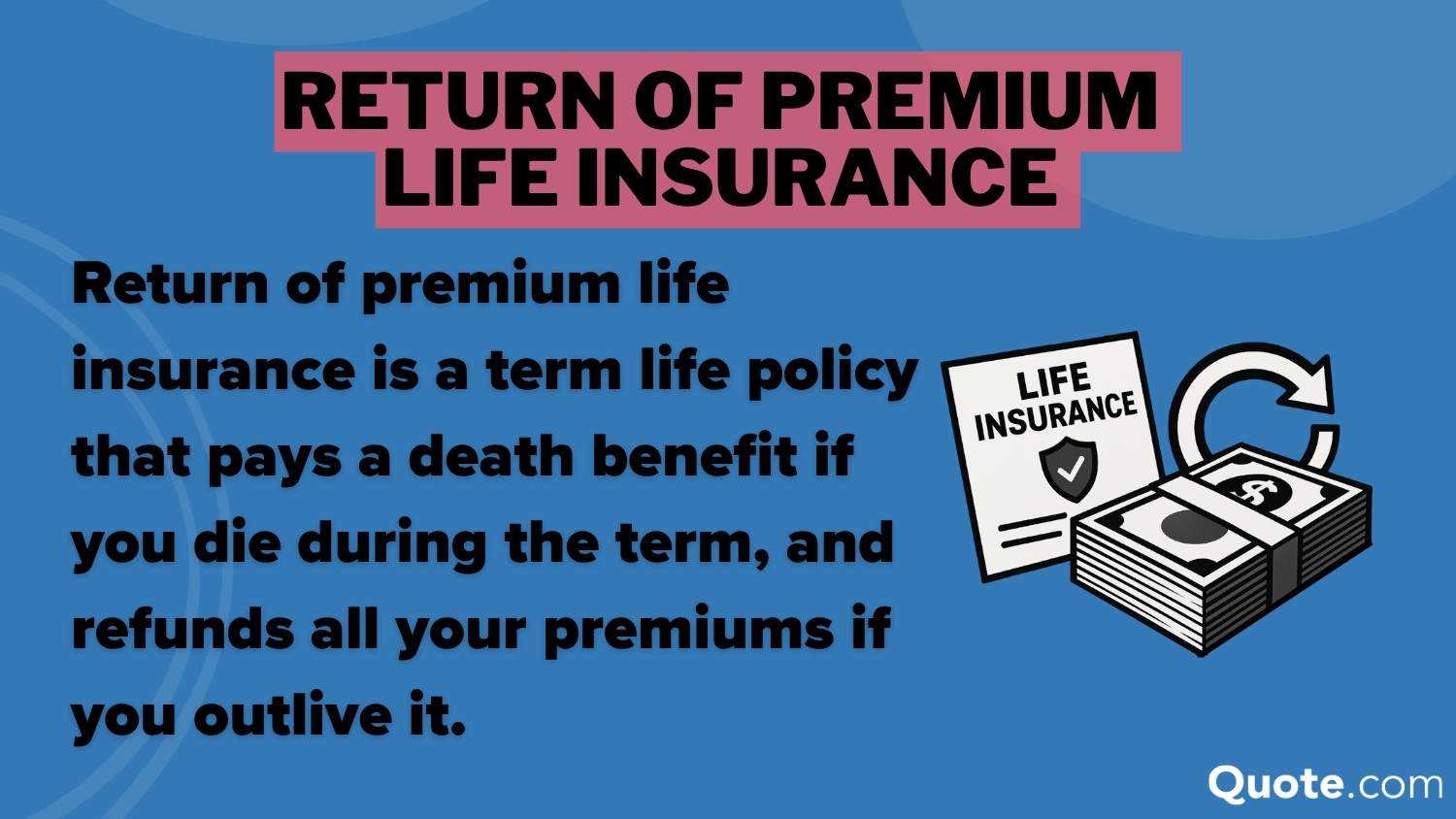Universal Life Insurance (2026 Guide)
Discover how universal life insurance works, including flexible premiums, cash value growth, and how it compares to whole and term life insurance. See if it’s right for you.
Secured with SHA-256 Encryption




Table of Contents
Table of Contents


Managing Editor
Daniel S. Young began his professional career as chief editor of The Chanticleer, a Jacksonville State University newspaper. He also contributed to The Anniston Star, a local newspaper in Alabama. Daniel holds a BA in Communication and is pursuing an MA in Journalism & Media Studies at the University of Alabama. With a strong desire to help others protect their investments, Daniel has writt...
Daniel S. Young


Senior Director of Content
Sara Routhier, Senior Director of Content, has professional experience as an educator, SEO specialist, and content marketer. She has over 10 years of experience in the insurance industry. As a researcher, data nerd, writer, and editor, she strives to curate educational, enlightening articles that provide you with the must-know facts and best-kept secrets within the overwhelming world of insurance....
Sara Routhier


Commercial Lines Coverage Specialist
Michael Vereecke is the president of Customers First Insurance Group. He has been a licensed insurance agent for over 13 years. He also carries a Commercial Lines Coverage Specialist (CLCS) Designation, providing him the expertise to spot holes in businesses’ coverage. Since 2009, he has worked with many insurance providers, giving him unique insight into the insurance market, differences in ...
Michael Vereecke
Updated November 2025
Universal life insurance is a type of permanent life insurance that offers flexible premium payments, adjustable death benefits, and a cash value component that grows over time. Unlike whole life insurance, which is more rigid, universal life allows you to adapt your policy as your financial needs change—making it one of the most customizable life insurance options available.
This flexibility makes universal life a popular choice for people looking for both lifelong protection and long-term financial planning.
How Universal Life Insurance Works
Universal life insurance (UL) provides coverage for your entire life, as long as you pay enough to cover the policy’s costs. Each premium you pay goes toward two components:
- Cost of insurance (pays for the death benefit)
- Cash value (accumulates interest and grows tax-deferred)
The cash value earns interest at a rate set by the insurer (or based on market performance if you choose an indexed or variable option). You can use this cash value to:
- Pay premiums
- Take out policy loans
- Make partial withdrawals
As long as the cash value and/or premium payments are sufficient to cover costs, your policy remains in force indefinitely.
Free Life Insurance Comparison
Compare Quotes From Top Companies and Save
Secured with SHA-256 Encryption
Key Features of Universal Life Insurance
- Flexible Premiums: You can increase, decrease, or even skip payments if your cash value can cover the policy charges.
- Adjustable Death Benefit: You may be able to raise or lower the death benefit (often subject to medical underwriting).
- Cash Value Growth: Accumulates tax-deferred and can be used during your lifetime.
- Access to Cash: Loans and withdrawals are available, though they may reduce your death benefit.
- Permanent Coverage: Designed to last your entire life if properly funded.
Types of Universal Life Insurance
There are several different types of universal life insurance policies available:
Traditional Universal Life
- Earns interest based on rates set by the insurer
- Includes a guaranteed minimum interest rate
- Simple and conservative option
Indexed Universal Life (IUL)
- Cash value growth is tied to a market index (like the S&P 500)
- Upside potential with downside protection
- Growth is capped, and floors protect your cash value from market drops
Variable Universal Life (VUL)
- Lets you invest cash value in market-based sub-accounts (similar to mutual funds)
- High growth potential but greater risk
- Ideal for experienced investors who want market exposure
Pros and Cons of Universal Life Insurance
Pros:
- Flexible payments to fit your changing financial situation
- Adjustable death benefit to meet evolving coverage needs
- Tax-deferred growth on the cash value
- Access to cash for emergencies, retirement, or other needs
Cons:
- Policy can lapse if underfunded, especially with low interest rates
- More complex than term or whole life insurance
- May result in taxable events if the policy becomes a MEC
- Higher fees and potential surrender charges
Free Life Insurance Comparison
Compare Quotes From Top Companies and Save
Secured with SHA-256 Encryption
Who should consider universal life insurance?
Universal life insurance is best for people who:
- Want flexible premium options throughout their lifetime
- Need permanent coverage for estate planning or legacy purposes
- Are looking for tax-deferred growth alongside life insurance
- Have fluctuating income or anticipate changing coverage needs
- Prefer more control and optional investment components
Universal Life Insurance vs. Whole Life Insurance
| Feature | Universal Life Insurance (UL) | Whole Life Insurance (WL) |
|---|---|---|
| Premium Structure | Flexible. You can pay more, less, or even skip payments (if enough cash value exists). | Fixed. Same premium for life, set at purchase. |
| Death Benefit | Adjustable. You may request increases/decreases (increase usually needs new underwriting). | Guaranteed & Level. Death benefit stays the same unless you add paid-up additions or riders. |
| Cash-Value Growth | Credited with current interest, index, or market performance (IUL/VUL). Minimum guarantees may be low. | Grows at a guaranteed interest rate plus possible dividends from a mutual insurer—very predictable. |
| Risk/Reward Profile | Varies: low (traditional UL) to moderate (IUL) to high (VUL). Returns can outpace WL in good markets but can underperform in low-rate periods. | Conservative: slow-and-steady accumulation; little market risk. |
| Policy Charges | Typically itemized (cost of insurance, admin, etc.). Charges can rise with age. | Charges bundled into level premiums; costs are stable and easier to understand. |
| Borrowing & Withdrawals | Easy access; but if performance lags, loans/withdrawals can jeopardize policy. | Also easy access; loans accrue interest but the policy’s guarantees cushion the impact. |
| Ideal For | People who want premium/benefit flexibility and can monitor funding; investors willing to trade predictability for potential upside. | Buyers valuing simplicity, predictability, and guarantees; those comfortable locking in higher fixed premiums early. |
Why pick one over the other?
Choose Universal Life if you anticipate income swings (e.g., business owners), want the option to overfund for tax-deferred growth, and are willing to manage the policy’s funding risk.
Choose Whole Life if you prefer a “set-it-and-forget-it” solution with guaranteed cash value and predictable premiums, even if that means higher upfront costs and less growth potential.
Universal Life Insurance vs. Term Life Insurance
| Feature | Universal Life Insurance (UL) | Term Life Insurance |
|---|---|---|
| Coverage Duration | Lifetime—policy can last forever if adequately funded. | Temporary—coverage for 10, 15, 20, 25, or 30 years (sometimes to age 65). |
| Premium Cost | Higher overall. Flexible, but minimums must be met to keep policy in force. | Lowest cost per dollar of protection. Premium stays level for the chosen term. |
| Cash Value / Savings | Yes. Builds tax-deferred cash value that you can borrow/withdraw. | None. Pure insurance—no savings component. |
| Investment Component | Possible (IUL, VUL) for upside growth. | None. |
| Policy Lapse Risk | Can lapse if underfunded or if loans/fees erode cash value. | No lapse risk during the term as long as premiums are paid. |
| Convertibility | Not needed—already permanent. | Many term policies allow a conversion rider to UL or WL without a medical exam within a set window. |
| Ideal For | Long-term planners wanting lifetime coverage + accumulating savings, and who can afford higher costs. | People needing affordable, high face-amount protection for a limited time (mortgage, kids’ college). |
When does each make sense?
Universal Life:
- You’re maxing out 401(k)/IRA options and want another tax-advantaged bucket.
- You need permanent protection (estate taxes, special-needs dependent).
- You have flexibility in cash flow and can overfund in high-income years.
- You like the idea of borrowing from the policy in retirement.
Term Life:
- Budget is tight but you need substantial coverage now—e.g., young family.
- You have a specific liability window (20-year mortgage).
- You’re comfortable converting later if lifelong needs emerge.
- You prefer to invest the difference in low-cost index funds rather than build cash value inside a policy.
Free Life Insurance Comparison
Compare Quotes From Top Companies and Save
Secured with SHA-256 Encryption
Final Thoughts
Universal life insurance offers a powerful combination of flexibility, longevity, and cash value growth. It’s a smart choice for those who need permanent coverage but don’t want to be locked into rigid payments.
However, the complexity and performance sensitivity mean it’s best suited for those who are financially engaged or working with an advisor.
At Quote.com, we help you explore all your options and compare universal life insurance quotes tailored to your goals. Get started today and find out if this flexible form of coverage is the right fit for your financial plan.

Frequently Asked Questions
Can I change my premiums with universal life insurance?
Yes. You can adjust your payments over time. As long as the policy has enough cash value or you meet the minimum required premium, the policy can remain in force.
What happens if my policy underperforms?
If interest rates fall or investments don’t perform, your cash value may grow more slowly or shrink. You may need to pay more into the policy to keep it active.
Is universal life insurance a good investment?
It depends on your goals. UL can be a valuable tool for tax-deferred savings and lifelong protection, but it shouldn’t replace dedicated retirement accounts or higher-growth investment vehicles unless structured carefully.
Will my policy lapse if I stop paying?
It can lapse if the cash value is too low to cover policy charges. Regular review and funding are essential to keeping it active.
Get a FREE Quote in Minutes
Insurance rates change constantly — we help you stay ahead by making it easy to compare top options and save.






